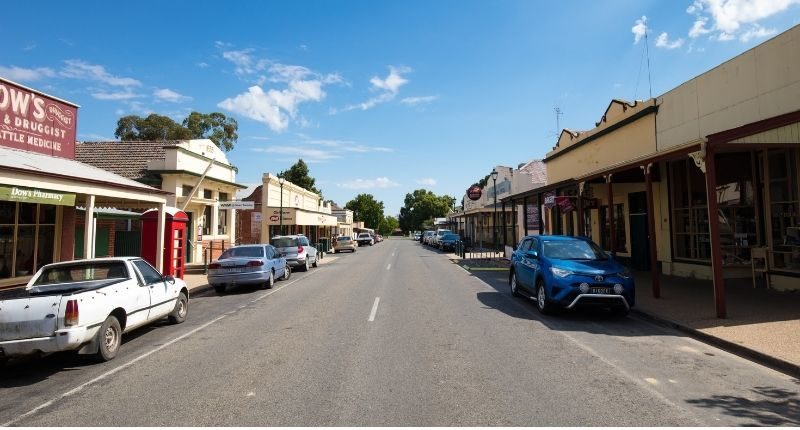- Craig Whatman says the Victorian government has either introduced or increased 19 taxes since 2014
- The new Windfall Gains Tax doesn't just affect Melbourne - it affects major regional areas too
- Calculating the tax itself is difficult, he adds
Victoria’s newest property tax is likely to have a marked impact on housing affordability in some of the state’s most in-demand regional areas, Pitcher Partners Melbourne partner and property tax specialist Craig Whatman writes.
Regional Victoria is about to lose its status as a more affordable and more desirable lifestyle alternative to suburban Melbourne.
And while Victorian home values rocketed by nearly 30 per cent outside of Melbourne in the past two years, it’s not just rising house prices to blame.
Instead, the latest challenge to housing affordability in Victoria is coming from within.
Premier Dan Andrews’ latest tax on property — one of 19 new or increased imposts introduced since his Labor government was elected in 2014 — is forcing developers to look outside of Victoria.
Due to come into effect in July next year, the Windfall Gains Tax, or rezoning tax as the industry describes it, will result in value increases from rezoning decisions in a swathe of regional areas to be taxed at 50% if the uplift is more than $500,000.
Already it has seen developers shy away from in-demand regional areas such as Bendigo, Geelong, Ballarat and Shepparton, where rezoning decisions will subject landowners to the new tax.

Any reduction in future housing supply will significantly push up the costs of relocating to the country, with the current number of new dwellings being constructed being far outweighed by the number of new households moving to regional Victoria.
Data from the National Housing Finance and Investment Corporation shows there was a new net annual dwelling supply of 2,700 homes in regional Victoria in 2021.
Over the same period, there were 8,900 new net annual households formed in regional Victoria, resulting in a supply shortfall of 6,200 dwellings.
While that ratio is likely to reverse in coming years, the rezoning tax is increasingly factoring into developers’ decision-making processes. Transactions for development sites are likely to slow significantly once it applies.
Seeking non-Victorian development opportunities
Importantly, it has also hit developer confidence across the board.
That’s because many are starting to look at the Victorian government as one that’s treating the property industry as a ‘golden goose’ to restore its budget deficit.
Analysis by the Urban Development Institute of Australia’s Victorian division showed property taxes and charges make up 44% of the state’s tax revenue, equating to $6.7 billion per year.
With yet another new tax on the way, national players may well look at Victoria as too hard and pursue opportunities in other states, with the biggest uncertainty around this tax being exactly what the additional cost will be.
Calculating the tax payable is exceedingly difficult when entering contracts; historical data is hard to apply because there is so much difference in individual sites, and any value uplift would be specific to the rezoning process and each separate area being rezoned.
The exact value of the uplift will be determined by Victoria’s Valuer-General, based on the capital improved value of the relevant land.
But at the moment, you can’t quantify what the tax will be, so developers don’t know what to bid when making an offer on a site.
They are likely to err on the side of caution and not bid, or they will find an alternative site that’s already zoned for residential development.
For developers that remain keen to buy a site earmarked for future rezoning, drafting special conditions to make it clear who is responsible for the liability once it is incurred has become an important part of the contract negotiation.
The concern is that this uncertainty will lead to cautiousness, and ultimately a lack of competitiveness between Victoria and our peers in NSW and Queensland.
At Pitcher Partners, we’re seeing some of our clients starting to look to other jurisdictions.
There are opportunities elsewhere now, particularly in Queensland, but one of the biggest drivers is that Victoria is becoming more uncompetitive from a tax perspective.
Part of the problem is the state government does not seem to have done the modelling to understand that there will be an impact in dollar terms and quite a material one on house prices.
At a high level, their basic view is that the property industry will just adjust and absorb that cost.
But that’s not the way that our clients’ models work. Those cost increases are likely to be passed onto the consumer, and home ownership in regional Victoria will be pushed out of reach for many buyers.








